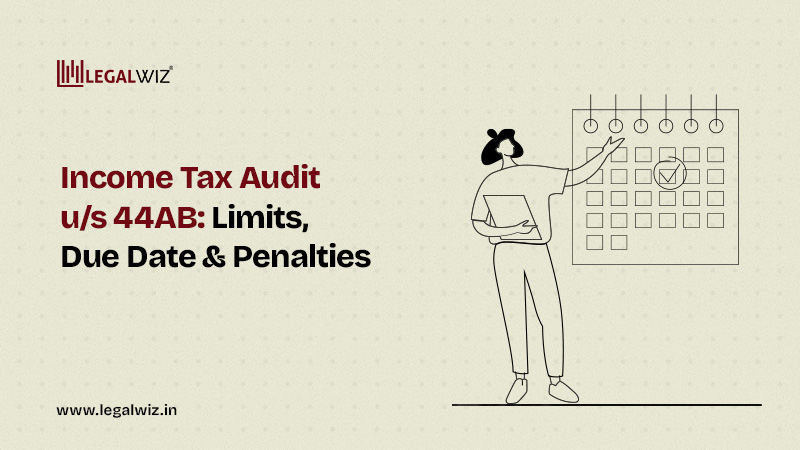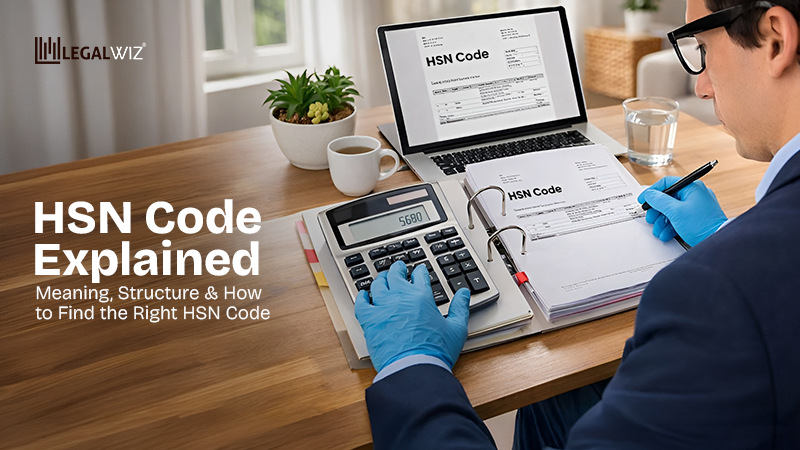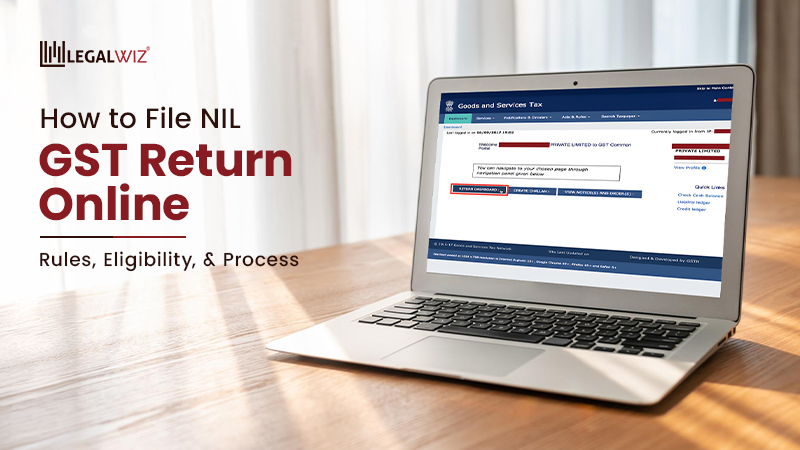Income Tax Audit u/s 44AB: Limits, Due Date & Penalties (AY 2025–26)
Filing your income tax return means, for some taxpayers, a tax audit is non-negotiable. It’s like a financial health check-up by a chartered accountant to make sure your books are squeaky clean and playing by the rules.
So, who actually needs one? If your business turnover crosses ₹1 crore (₹2 crore if you’re on presumptive schemes) or if you’re a professional earning over ₹50 lakh, congratulations—you’re on the audit radar!
But here’s the kicker: not everyone’s in this club. Audit rules depend on your turnover, receipts, or professional income. If you don’t hit those numbers, you can breathe easy (for now).
Heads up, the deadline for FY 2024–25 audits is 30th September 2025 (unless there’s an extension). Miss it, and penalties up to 0.5% of your turnover or receipts might come knocking. Ouch.
Bottom line? Knowing your audit rules isn’t just about ticking boxes. It’s your secret weapon for filing your tax return without a hitch—and keeping penalties far, far away. And if you’re curious how this audit puzzle fits into your ITR journey, take a peek at ITR Filing Fundamentals for AY 2025–26.
1. What is an Income Tax Audit u/s 44AB?
An income tax audit u/s 44AB is basically a CA-powered health check for your finances—mandatory, precise, and definitely not a spa day. It’s when a chartered accountant dives into your books, income, and deductions to make sure everything’s playing by the Income Tax Act’s rulebook. Think of it as the official answer to “what’s a tax audit really,” a neat way to keep your financial game transparent and audit-proof.
And if you’ve ever wondered what the difference is between an auditor and a compliance officer (spoiler: they’re not the same!), check out this surprisingly handy breakdown here: difference between auditor & compliance officer.
Tax Audit Applicability Under Section 44AB
Whether you need one depends on your turnover, receipts, or professional income:
- Businesses – Turnover above ₹1 crore (or ₹2 crore under presumptive taxation).
- Professionals – Gross receipts above ₹50 lakh.
- Certain taxpayers opting out of presumptive taxation may also fall under audit rules.
Miss it? Expect penalties and potential legal headaches.
Objectives of the audit
The audit isn’t just box-ticking; it serves a purpose:
- Ensuring compliance – Checks if you’re following the Act.
- Accuracy of accounts – Confirms that income, expenses, and deductions are reported correctly.
- Transparency – Builds trust with banks, investors, and the tax department.
In short, a tax audit u/s 44AB is more than a legal must-do; it’s your ticket to clean books and stress-free compliance. And if you’re curious about presumptive taxation and how it tweaks your audit limits, check out our detailed guide for freelancers – it’s surprisingly handy even for small businesses.
2. Applicability of Section 44AB in ITR Filing for AY 2025–26
Tax audit rules aren’t one-size-fits-all—they depend on your turnover, receipts, and whether you’re cruising the presumptive taxation “fast lane” for small businesses. Here’s the lowdown for FY 2024–25 (AY 2025–26):
For Businesses
- Turnover Threshold: If your business turnover crosses ₹1 crore, buckle up—you’re in audit territory.
- Presumptive Taxation Perk: Opt for presumptive taxation under Section 44AD, declare your income at the set rate (8%, or 6% if you’re rolling with digital receipts), and voilà, your audit threshold doubles to ₹2 crore.
Curious if presumptive taxation can save you from compliance headaches? Let’s dig in and check out presumptive taxation: benefits & considerations.
For Professionals
- Gross Receipts Limit: Professionals must get their books audited if their gross receipts exceed ₹50 lakh in a financial year.
Special Cases
Even if turnover or receipts are within limits, a tax audit might still be required if you declare income below the prescribed percentage under presumptive schemes (44AD, 44ADA, 44AE).
Tax Audit Applicability Table – FY 2024–25
| Category | Turnover / Gross Receipts | Audit Required? |
| Business (Normal) | > ₹1 crore | Yes |
| Business (44AD Presumptive) | > ₹2 crore | Yes |
| Professional | > ₹50 lakh | Yes |
| Presumptive Scheme Declared Income < Prescribed % | Any | Yes |
3. Income Tax Audit Due Date for AY 2025–26
Tick-tock, it’s audit o’clock! Missing your tax audit due date for AY 2025–26 isn’t just risky, it’s costly. Here’s the timeline you can’t afford to ignore.
Statutory Due Date for Tax Audit Report:
- Taxpayers required to undergo an audit under Section 44AB must file the tax audit report by 30th September 2025.
- The report is submitted electronically in Form 3CD along with Form 3CA/3CB, as applicable.
Due Date for Filing ITR (Linked to Audit):
- After completing the audit, the Income Tax Return (ITR) must be filed by 31st October 2025.
- Missing the tax audit due date can attract:
- Late fees under Section 234F
- Penalty under Section 271B
For those filing without an audit, don’t let the deadline catch you off guard. Check the ITR filing last date for FY 2024–25 to stay ahead of the game and avoid last-minute chaos.
Extensions for Tax Audit (If Any):
- Extensions are granted only if officially notified by the Income Tax Department.
- For AY 2025–26, no extension has been announced, so the statutory deadline applies.
Pro Tips for Timely ITR Filing:
- Maintain proper books of accounts and financial records.
- Coordinate with your Chartered Accountant in advance.
- Ensure all supporting documents are ready before submission.
Why Meeting the Tax Audit Due Date Matters:
- Avoids penalties and legal complications.
- Ensures smooth processing of your ITR.
- Demonstrates compliance and credibility to banks, investors, and authorities.
4. Forms Used for Tax Audit
| Form | Applicability | Key Points / Details |
| 3CA | When accounts are already audited under any other law (e.g., Companies Act) | Tax audit report under Section 44AB is attached along with this form. |
| 3CB | When accounts are not audited under any other law | A Chartered Accountant certifies accounts solely for income tax audit purposes. |
| 3CD | Must be filed along with Form 3CA or 3CB | – Detailed statement with 41 clauses – Includes turnover/gross receipts, income under presumptive schemes, deductions, loans, advances, and other financial transactions |
Pro Tip: Choosing the correct form is crucial. Mistakes can delay ITR filing and may attract scrutiny from tax authorities. Always coordinate with your Chartered Accountant.
5. Penalties for Non-Compliance Under Section 44AB
Miss the tax audit deadline and the taxman won’t just frown, he’ll fine you! Penalties can sting, and compliance missteps make it worse.
Curious when an audit becomes non-negotiable? Peek into when audit is mandatory for different structures of businesses and stay penalty-proof.
Penalty u/s 271B – Amount & Calculation
- If a taxpayer fails to get the books of accounts audited as required under Section 44AB, a penalty is imposed.
- Amount of Penalty:
- 0.5% of the total turnover or gross receipts of the business or profession for the relevant financial year.
- However, the penalty is capped at ₹1,50,000, even if the calculated amount exceeds this limit.
- Example:
- If turnover is ₹5 crore and audit is not done, penalty = 0.5% × ₹5 crore = ₹2,50,000.
- But the maximum penalty chargeable is ₹1,50,000.
Relief Under Section 273B – Reasonable Cause
- Penalty may not be levied if the taxpayer proves a reasonable cause for non-compliance.
- Common examples of reasonable cause include:
- Natural disasters – Floods, earthquakes, or fires can destroy your books of accounts, making timely filing impossible.
- Health emergencies – Serious illness or death of the taxpayer or key accounting staff can disrupt record-keeping.
- Technical issues – Glitches in the Income Tax e-filing portal may prevent a successful submission.
- Uncontrollable events – Strikes, riots, or other disruptions can affect normal business operations and filings.
Key Point: If you miss the deadline, the spotlight’s on you, you’ll need to prove why it wasn’t your fault.
Why Timely Compliance Matters
- Avoid penalty punches: Section 271B fines? Nope, thanks!
- Dodge the tax spotlight: Stay off the auditors’ radar and skip extra questions.
- Score credibility points: Keep banks, investors, and regulators smiling.
- Smooth sailing for ITRs: Faster refunds, fewer headaches, more happy dances.
Pro Tip: Think of a tax audit as a financial check-up, not a courtroom drama. On-time audits = trust points + peace of mind.
6. Compliance Hacks to Keep Your Tax Game Strong
| Compliance Step | What to Do | Why It Matters |
| Maintain Proper Books of Accounts | Keep invoices, receipts, expense records, and statements updated. Use accounting software to avoid errors. | Ensures accurate reporting and a smooth audit process. |
| Get an Audit Done by a Qualified Chartered Accountant | Engage a CA experienced in your industry and consult throughout the year. | Only a CA can conduct tax audits under Section 44AB and ensure compliance. |
| File the Audit Report on Time | Submit electronically before the tax audit due date – 30th September 2025. | Avoids penalties under Section 271B and delays in ITR processing. |
| Proactive Planning | Conduct internal reviews well before year-end and track turnover thresholds. | Prevents last-minute errors and compliance risks. |
Pro Tip: Consistent compliance isn’t a last-minute sprint; it’s a marathon of good habits.
Final Takeaway
A tax audit isn’t just annoying paperwork—it’s more like your financial bodyguard wearing sunglasses and a leather jacket. Imagine it standing guard, making sure your records are squeaky clean (no skeletons hiding in those spreadsheets), your ITR filing is smoother than your morning coffee, and you don’t break a sweat when the taxman shows up at your door asking questions.
Bonus points? Audited books are like having a VIP pass, they earn you serious street cred with banks, investors, and regulators who actually trust you to mean business.
Why Timely Compliance Matters
- Accuracy wins: Fewer oops moments mean fewer tax notices.
- Avoid nasty fines: Miss the audit deadline, and hello, ₹1.5 lakh penalty knocking on your door.
- Credibility boost: Clean, audited books scream, “I mean business!”
Key Reminder:
- Know your stuff: Check if you need an audit before the year’s over.
- Don’t procrastinate: File by 30th September 2025.
- Call in the experts: A Chartered Accountant makes it quick, easy, and painless.
Stress-Free Audits? Yes, Please!
Audits can feel like a jungle, but you don’t have to wander alone. Team up with a tax whiz at LegalWiz.in and glide through your filing like a pro.
Frequently Asked Questions
Who needs a tax audit under Section 44AB?
If your business crosses ₹1 crore (₹2 crore for presumptive) or your professional receipts go beyond ₹50 lakh – congratulations, you’ve unlocked the audit level!
What’s the damage for missing the tax audit report deadline?
Penalty = 0.5% of turnover/gross receipts, maxing out at ₹1.5 lakh. Ouch! But Section 273B can save you if you have a valid excuse.
Can I skip the audit if I’m under presumptive taxation?
Yes. If you declare income at the required percentage. Go lower, and the audit bell rings.
What if my turnover crosses the limit mid-year?
No escape. The moment you cross the limit, the tax audit becomes your new companion for that year.
Which forms do I need?
3CA, 3CB, and 3CD – think of them as your tax audit trio. Choose wisely (or let your CA do it for you).

Sapna Mane
Sapna Mane is a skilled content writer at LegalWiz.in with years of cross-industry experience and a flair for turning legal, tax, and compliance chaos into clear, scroll-stopping content. She makes sense of India’s ever-changing rules—so you don’t have to Google everything twice.







